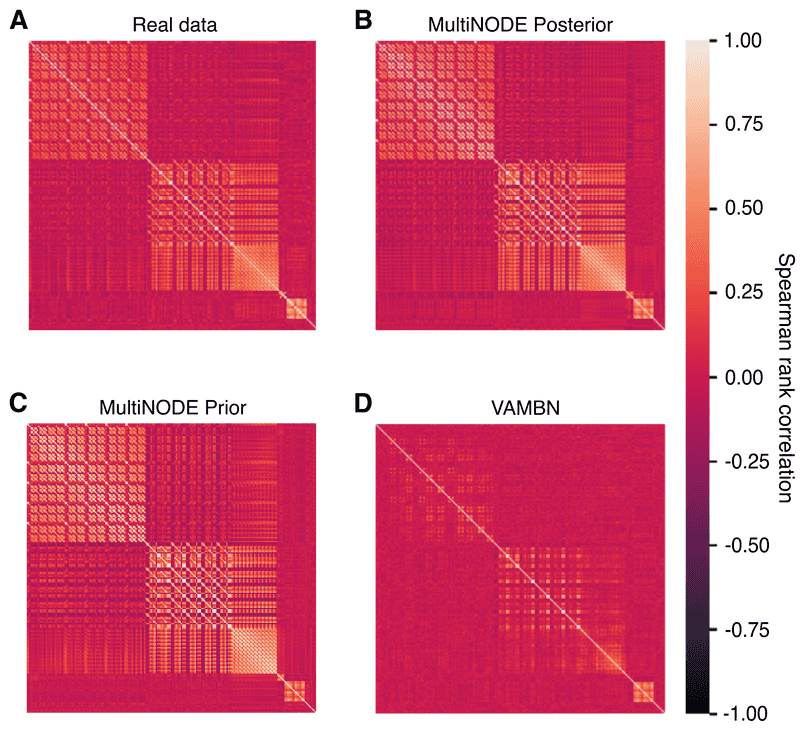Generation of realistic synthetic data using Multimodal Neural Ordinary Differential Equations
- Published August 20, 2022
- Wendland, P.*, Birkenbihl, C.*, Gomez-Freixa, M., Sood, M., Kschischo, M., & Fröhlich, H.
- npj Digital Medicine
- https://doi.org/10.1038/s41746-022-00666-x
Highlights
- Developed a novel AI model for synthetic data generation
- Integrates longitudinal and static data and handles missing values
- Allows for smooth, time-continous interpolation and extrapolation
- Captures and conserves complex correlation structures
- Trained and tested on two independent patient-level cohort datasets
Abstract
Individual organizations, such as hospitals, pharmaceutical companies, and health insurance providers, are currently limited in their ability to collect data that are fully representative of a disease population. This can, in turn, negatively impact the generalization ability of statistical models and scientific insights. However, sharing data across different organizations is highly restricted by legal regulations. While federated data access concepts exist, they are technically and organizationally difficult to realize. An alternative approach would be to exchange synthetic patient data instead. In this work, we introduce the Multimodal Neural Ordinary Differential Equations (MultiNODEs), a hybrid, multimodal AI approach, which allows for generating highly realistic synthetic patient trajectories on a continuous time scale, hence enabling smooth interpolation and extrapolation of clinical studies. Our proposed method can integrate both static and longitudinal data, and implicitly handles missing values. We demonstrate the capabilities of MultiNODEs by applying them to real patient-level data from two independent clinical studies and simulated epidemiological data of an infectious disease.
Corrections
During the layouting errors were made and not updated as we asked for. Below you find corrections that were missed:
Corrected Author Contributions
H.F., C.B., and P.W. conceived the project. P.W. implemented the method. P.W., C.B., M.G.-F. and M.S. performed the experiments. C.B. and H.F. wrote the manuscript. P.W., M.K., and M.S. revised the manuscript. C.B. and H.F. supervised the work.


Newsletter
If you liked this post, sign up to get updates in your email when I write something new! No spam ever.
Subscribe to the Newsletter